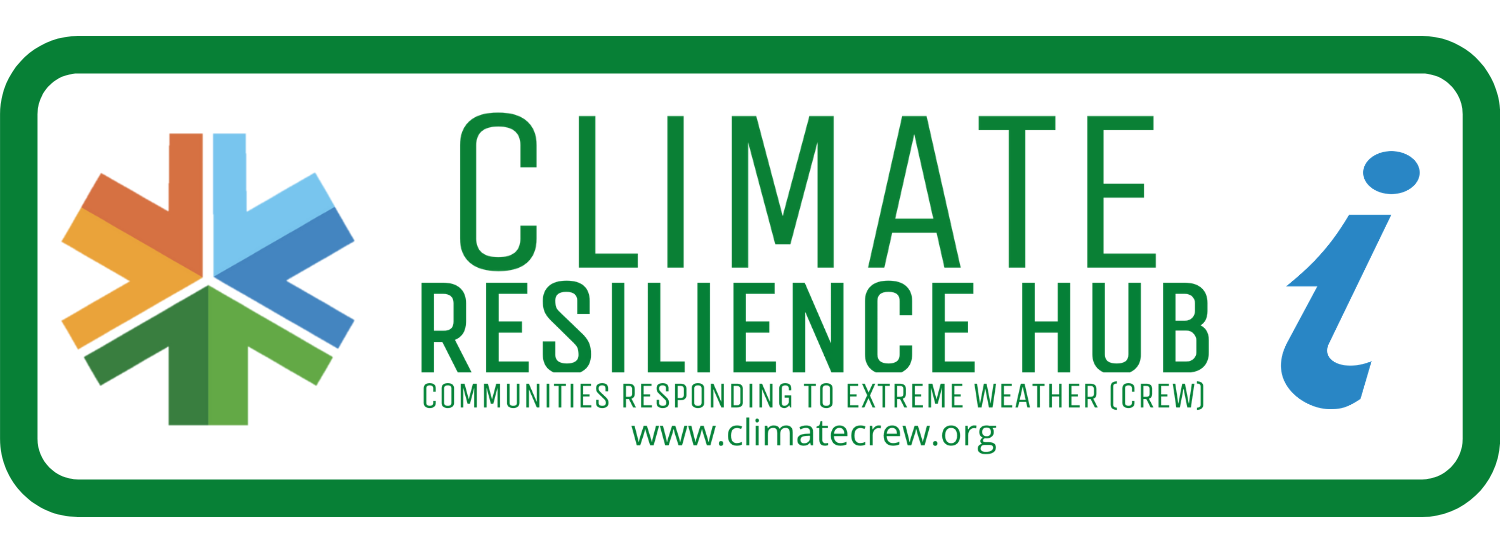
As a Certified Sustainable Library, we are committed to being truly sustainable, following the “triple-bottom line” definition of sustainability by embodying practices that are environmentally sound, economically feasible and socially equitable. In 2018, the Library enrolled in the Sustainable Libraries Initiative's Certification program. We became the third library in the United States to achieve this one-of-a-kind certification in January of 2019.
Our commitment includes a full-time Sustainability Coordinator on staff who oversees a team of employees from different departments. The team focuses on practicing the triple-bottom line through engagement and education within the community while celebrating the different cultures and diversity amongst staff and library users to make sure all feel welcome, safe, and valued.
Upcoming Events
A representative from PSEG will be here to discuss heating and emergency benefits to offset the cost of utility bills.
Disclaimer(s)
No registration.
Learn about programs that prepare you for the High School Equivalency exam (GED) or improving your English skills. For more information call (631)667-4000 x191. Register now.
Disclaimer(s)
Register now.
A representative from PSEG will be here to discuss heating and emergency benefits to offset the cost of utility bills.
Disclaimer(s)
No registration.
Bicycle Repair Station
The Library offers a bicycle repair station onsite. Feel free to use our tools to improve your ride!
Little Free Pantries
The Library has established two outdoor Little Free Pantries, located on the west side of the building between the staff entrance and the ramp to the old Express Library. Please feel free to take what you need or give what you can.
Bike Locks
Bike locks are available as a courtesy to patrons to use with the library’s bike rack. Patrons must exchange a Library Card or ID in order to use the bike lock on the premises. The bike lock and its key are due back to the Customer Service Desk the same day.
Sustainable Happenings at LML
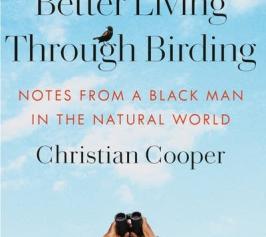
Long Island Reads: Better Living Through Birding

The Seed Library is Back in Bloom!
Sustainability Collection
-
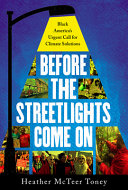
Before the Streetlights Come On
Climate change. Two words that are quickly becoming the clarion call to action in the twenty-first century. It is a voter issue, an economy driver, and a defining dynamic for the foreseeable future. Yet, in Black communities, climate change is seen as less urgent when compared to other pressing issues, including police brutality, gun violence, job security, food insecurity, and the blatant racism faced daily around the country.
However, with Black Americans disproportionately impacted by the effects of climate change--making up 13 percent of the US population but breathing 40 percent dirtier air and being twice as likely to be hospitalized or die from climate-related health problems than white counterparts--climate change is a central issue of racial justice and affects every aspect of life for Black communities.
In Before the Streetlights Come On, climate activist Heather McTeer Toney insists that those most affected by climate change are best suited to lead the movement for climate justice. McTeer Toney brings her background in politics, community advocacy, and leadership in environmental justice to this revolutionary exploration of why and how Black Americans are uniquely qualified to lead national and global conversations around systems of racial disparity and solutions to the climate crisis. As our country delves deeper into solutions for systemic racism and past injustices, she argues, the environmental movement must shift direction and leadership toward those most affected and most affecting change: Black communities.
-
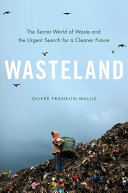
Wasteland
NAMED A BEST BOOK OF THE YEAR 2023 BY THE NEW YORKER, THE GUARDIAN, and KIRKUS REVIEWS
An award-winning investigative journalist takes a deep dive into the global waste crisis, exposing the hidden world that enables our modern economy--and finds out the dirty truth behind a simple question: what really happens to what we throw away?
In Wasteland, journalist Oliver Franklin-Wallis takes us on a shocking journey inside the waste industry--the secretive multi-billion dollar world that underpins the modern economy, quietly profiting from what we leave behind. In India, he meets the waste-pickers on the front line of the plastic crisis. In the UK, he journeys down sewers to confront our oldest--and newest--waste crisis, and comes face-to-face with nuclear waste. In Ghana, he follows the after-life of our technology and explores the global export network that results in goodwill donations clogging African landfills. From an incinerator to an Oklahoma ghost-town, Franklin-Wallis travels in search of the people and companies that really handle waste--and on the way, meets the innovators and campaigners pushing for a cleaner and less wasteful future.
With this mesmerizing, thought-provoking, and occasionally terrifying investigation, Oliver Franklin-Wallis tells a new story of humanity based on what we leave behind, and along the way, he shares a blueprint for building a healthier, more sustainable world--before we're all buried in trash.
-
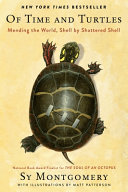
Of Time and Turtles
A NEW YORK TIMES BESTSELLER * THE PERFECT GIFT FOR NATURE LOVERS * INCLUDES ARTWORK * NATIONAL BESTSELLER * AMAZON EDITOR'S PICK and BEST BOOK OF 2023 * INDIE BESTSELLER
"Montgomery's heart-tugging conversations with teammates and her commitment to helping an octogenarian named Fire Chief reveal turtles to be perfect conduits for meditations on aging, disability and chosen family." --Scientific American
National Book Award finalist for The Soul of an Octopus and New York Times bestseller Sy Montgomery turns her journalistic curiosity to the wonder and wisdom of our long-lived cohabitants--turtles--and through their stories of hope and rescue, reveals to us astonishing new perspectives on time and healing.
When acclaimed naturalist Sy Montgomery and wildlife artist Matt Patterson arrive at Turtle Rescue League, they are greeted by hundreds of turtles recovering from injury and illness. Endangered by cars and highways, pollution and poachers, these turtles--with wounds so severe that even veterinarians would have dismissed them as fatal--are given a second chance at life. The League's founders, Natasha and Alexxia, live by one motto: Never give up on a turtle.
But why turtles? What is it about them that inspires such devotion? Ancient and unhurried, long-lived and majestic, their lineage stretches back to the time of the dinosaurs. Some live to two hundred years, or longer. Others spend months buried under cold winter water. Montgomery turns to these little understood yet endlessly surprising creatures to probe the eternal question: How can we make peace with our time?
In pursuit of the answer, Sy and Matt immerse themselves in the delicate work of protecting turtle nests, incubating eggs, rescuing sea turtles, and releasing hatchlings to their homes in the wild. We follow the snapping turtle Fire Chief on his astonishing journey as he battles against injuries incurred by a truck.
Hopeful and optimistic, Of Time and Turtles is an antidote to the instability of our frenzied world. Elegantly blending science, memoir, and philosophy, and drawing on cultures from across the globe, this compassionate portrait of injured turtles and their determined rescuers invites us all to slow down and slip into turtle time.
- Perfect gift for nature lovers.Includes a signature of photos plus stunning, photo-realistic full color paintings and black-and-white chapter opener art by wildlife artist Matt Patterson.Read more books by Sy Montgomery such as How to Be a Good Creature and The Soul of an Octopus.Don't miss The Book of Turtles for children.
-
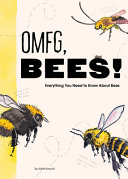
Omfg, Bees!
Guess what: Bees are incredible. If you don't think so, you're wrong; but you're also in luck! Extreme bee enthusiast and bestselling author Matt Kracht is here to set the record straight with this helpful guidebook to all things bees.
Are you ready for the ultimate bee book? With lighthearted watercolor and ink drawings, humorous quips, lists, and musings, OMFG, BEES! will show you just how important these esteemed bee-list celebrities really are. (Hint: We can't live without them.)
Delving into various bee topics, from distinguishing between bees and not bees (very crucial), to exploring the absolute wonder that is bee behavior (they do a coded dance directing their bee friends to food, for crying out loud!), to divulging the mind-blowing bee-magic behind honey making (within some extremely intricate and precisely constructed hexagonal honeycomb, no big deal), and more, Kracht's ode to bees paints a charming and enthusiastic picture of our favorite pollinators.
Bee-autiful full-color illustrations fill these pages that playfully and earnestly examine different kinds of bees, from the honeybee to the teddy bear bee, providing unbelievably cool facts about bees and reasons why they deserve a lot more credit as well as our appreciation and advocacy. Because omfg, BEES!!
BESTSELLING AUTHOR: Matt Kracht is the author of the bestselling Field Guide to Dumb Birds series: The Field Guide to Dumb Birds of North America,The Field Guide to Dumb Birds of the Whole Stupid World, and The Big Dumb Bird Journal. Now, Kracht offers something special for the more insect-inclined audience with OMFG, BEES!, an enthusiastic celebration in the same vein as Dumb Birds, with a little less fowl language and a bit more earnestness.
A FRESH TAKE FOR BEE LOVERS: Most books on bees are serious in tone and highly academic. OMFG, BEES! is the first of its kind: a celebratory, funny, and lighthearted illustrated compendium honoring the little guys that preserve humanity as we know it!
A HIGHLY GIFTABLE, QUALITY BOOK: This 5 x 7 inch, 4-color, compact book is packed with both information and humor, making it the perfect gift for novice bee enthusiasts to full-on bee experts.
BEES ARE IMPORTANT, FOR GOOD REASON: Without bees, Earth wouldn't be the same! We need bees. With an active Save the Bees movement erupting in the last few years, people are adamant about bee justice. According to Greenpeace, bees are responsible for one in every three bites of food humans consume--spreading this awareness and knowledge is ample reason to celebrate them!
Perfect for:- An informative and insanely fun option for anyone seeking books about bees for adults
- A great resource for general bee enthusiasts, Save the Bees advocates, environmentalists, and beekeepers
- Fans of animal humor books and nature shows
- Followers of #BeeTok and popular bee Instagram accounts
- A buzz-worthy gift for students, aspiring entomologists, gardeners, urban farmers, hikers, and all who want to learn about bees without the academic feel
- Pairing with honey-related gifts for sweet birthday, anniversary, holiday, housewarming, or hostess gift giving
-
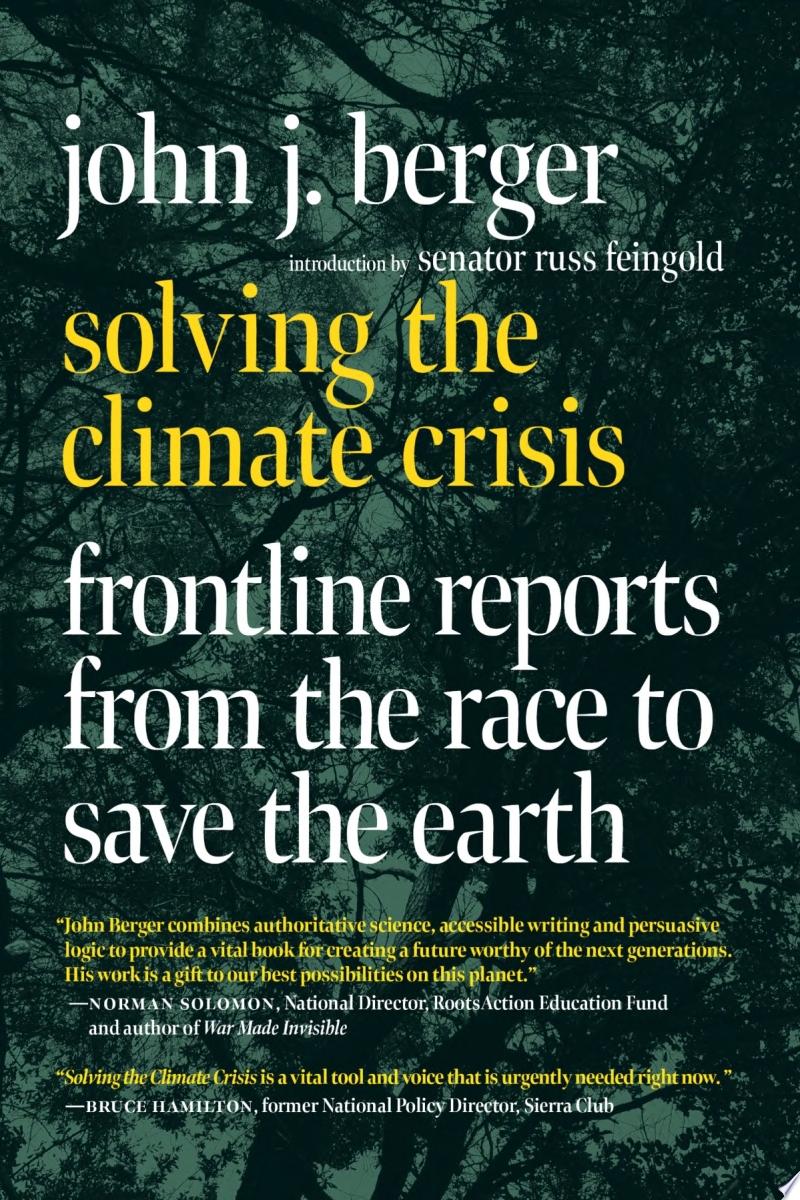
Solving the Climate Crisis
Groundbreaking solutions to the climate crisis from scientists, engineers, civic leaders, entrepreneurs and activists, offering hope to all readers concerned about our planet's future.
Offers practical actions that reflect technological and economic advances with an introduction by former United States senator Russ Feingold.
Solving the Climate Crisis is a hopeful and critical resource that makes a convincing and detailed case that there is a path forward to save our environment. Illustrating the power of committed individuals and the necessity for collaborative government and private-sector climate action, the book focuses on three essential areas:- The technological dimension: move to 100% clean renewable energy as fast as we possibly can through innovations like clean-steel, “green” cement, and carbon-reuse companies;
- The ecological dimension: enhance and protect natural ecosystems, forests, and agricultural lands to safely store greenhouse gases and restore soils, transforming how we grow, process, and consume food;
- The social dimension: update and create new laws, policies and economic measures to recenter human values and reduce environmental and social injustice.
Based on more than 6 years of research, Berger traveled the nation and abroad to interview governors, mayors, ranchers, scientists, engineers, business leaders, energy experts, and financiers as well as carbon farmers, solar and wind innovators, forest protectors, non-profit leaders, and activists.
With real world examples, an explanation of cutting-edge technologies in solar and wind, and political organizing tactics, Solving the Climate Crisis provides a practical road map for how we effectively combat climate change. Replacing the fossil-fuel system with a newly invigorated, modernized, clean-energy economy will produce tens of millions of new jobs and save trillions of dollars. Protecting the climate is thus potentially the greatest economic opportunity of our time. -
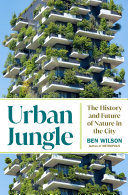
Urban Jungle
A lush history of the love/hate relationship between nature and the city, and an inspiring argument that the natural world may prove to be the city's savior
In this verdant follow-up to Metropolis, his seven-thousand-year history of people's relationship to the city, Ben Wilson explores our long-held desire to control and contain nature within our cities, from the earliest efforts in our first cities to wall nature out, to the Roman ideal of nature in the city, to our most magnificent and beloved but quite artificial city parks.
Today, cities are the fastest-growing type of habitat on Earth, a seeming disaster for the planet as they gobble up the deltas, rainforests, woodlands, grasslands, and wetlands where we like to site our cities. In Urban Jungle, Wilson looks to the history of nature and the city for clues to how cities--and the planet--can survive. He takes us around the world to cities where efforts to shift the balance between city and nature are already under way. When you think of the city of the future, think less of concrete seawalls and hydraulic gates, think more of cascading foliage, urban farms, dense groves of forest, and banyan trees coiled around office buildings.
In Urban Jungle, Wilson makes us see climate change as only the latest chapter in the dramatic human story of nature and the city. -
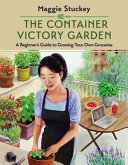
The Container Victory Garden
Even if all you have is a postage stamp's worth of space on a balcony, patio, or front stoop, The Container Victory Garden equips you to dig into the joys of container gardening, right where you are.
Imagine this: In the morning, you pluck a few mint leaves from your backdoor herb garden and add them to your tea. A few hours later, you step out onto your patio and collect a handful of lettuce leaves for your lunch salad. Just before dinner, you harvest a few basil leaves and cherry tomatoes for a delicious caprese pasta.
In her trademark warm and informative style, bestselling author and expert gardener Maggie Stuckey shares everything you need to know to succeed with container gardening: planning, gearing up, planting, nurturing, and harvesting.
In The Container Victory Garden, you will find:
- detailed line art drawings that illustrate many gardening techniques and set-ups
- first-person stories of World War II Victory Gardens and their inspiration for today's gardeners
- beautiful full-color paintings of diverse people enjoying their container gardens
This is the promise of container gardening: a fresh bounty of vegetables, herbs, and edible flowers you can enjoy in every season.
-
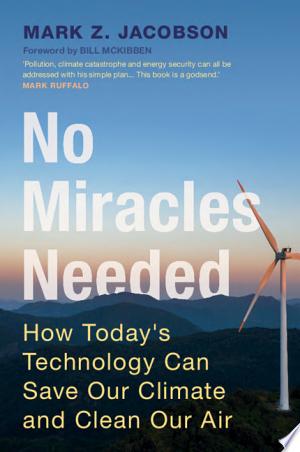
No Miracles Needed
The world needs to turn away from fossil fuels and use clean, renewable sources of energy as soon as we can. Failure to do so will cause catastrophic climate damage sooner than you might think, leading to loss of biodiversity and economic and political instability. But all is not lost! We still have time to save the planet without resorting to 'miracle' technologies. We need to wave goodbye to outdated technologies, such as natural gas and carbon capture, and repurpose the technologies that we already have at our disposal. We can use existing technologies to harness, store, and transmit energy from wind, water, and solar sources to ensure reliable electricity, heat supplies, and energy security. Find out what you can do to improve the health, climate, and economic state of our planet. Together, we can solve the climate crisis, eliminate air pollution and safely secure energy supplies for everyone.
-
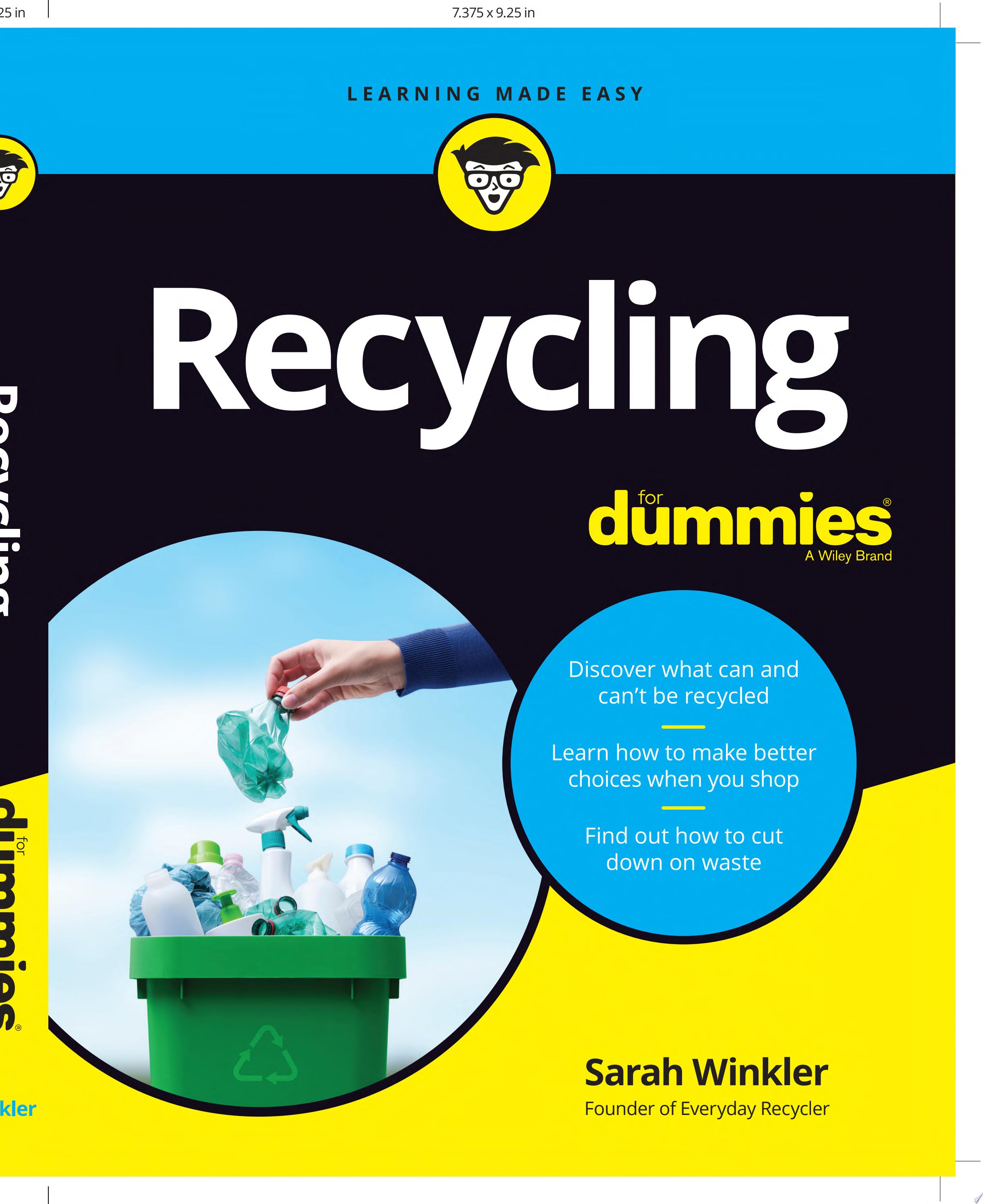
Recycling For Dummies
Learn the facts about recycling and discover the best way to make an impact
Recycling is a simple action we can take that has an immediate positive effect. It keeps waste out of landfills, conserves natural resources, prevents pollution, and saves energy. Who wouldn’t want to do this? But recycling isn’t always straightforward. With so many different rules, it can be tough to work out the right thing to do. If you’re worried that you’re not recycling properly, or wondering whether you could be recycling more, this is the book for you.
Recycling For Dummies cuts through the confusion around what you can and can’t recycle. This easy-to-follow manual breaks down recycling codes, symbols, and rules in a straightforward way that anyone can understand and apply. You’ll gain insight into the recycling process (where does that stuff go, anyway?) and learn tons of tips on reusing items in your daily life to cut down on waste. It also guides you on how to make smarter choices as a consumer to help preserve the planet for generations to come.
- Figure out what common materials can and can’t be recycled
- Understand what the recycling symbols are telling you
- Explore the many specialist recycling services available
- Learn what happens to your recyclables after they get picked up
- Become a true recycler by switching to recycled products
Check out this book if you want to make your efforts count and be part of the recycling solution.
-
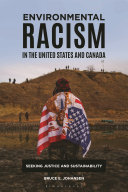
Environmental Racism in the United States and Canada
From Flint, Michigan, to Standing Rock, North Dakota, minorities have found themselves losing the battle for clean resources and a healthy environment. This book provides a modern history of such environmental injustices in the United States and Canada.
From the 19th-century extermination of the buffalo in the American West to Alaska's Project Chariot (a Cold War initiative that planned to use atomic bombs to blast out a harbor on Eskimo land) to the struggle for recovery and justice in Puerto Rico following Hurricane Maria in 2017, this book provides readers with an enhanced understanding of how poor and minority people are affected by natural and manmade environmental crises.
Written for students as well as the general reader with an interest in social justice and environmental issues, this book traces the relationship between environmental discrimination, race, and class through a comprehensive case history of environmental injustices. Environmental Racism in the United States and Canada: Seeking Justice and Sustainability includes 50 such case studies that range from local to national to international crises.
Learn More About Sustainability
Climate Stories Project

DoSomething

One of the largest nonprofits exclusively for young people and social change, DoSomething has activated millions of young people in 131 countries to take action to improve their communities.
EPA

The Environmental Protection Agency is an independent executive agency of the United States federal government tasked with environmental protection matters.
EPA Students

This website provides K-12 students and educators with access to quality homework resources, lesson plans and project ideas for learning and teaching about the environment.
Green File

Access to scholarly, government and general-interest titles that focus on global warming, green building, pollution, sustainable agriculture, renewable energy, recycling, and more.
UN: Student Sustainability

The materials available on this page are fun and engaging ways to learn about the Sustainable Development Goals and what you can do to take action to make them a reality.


